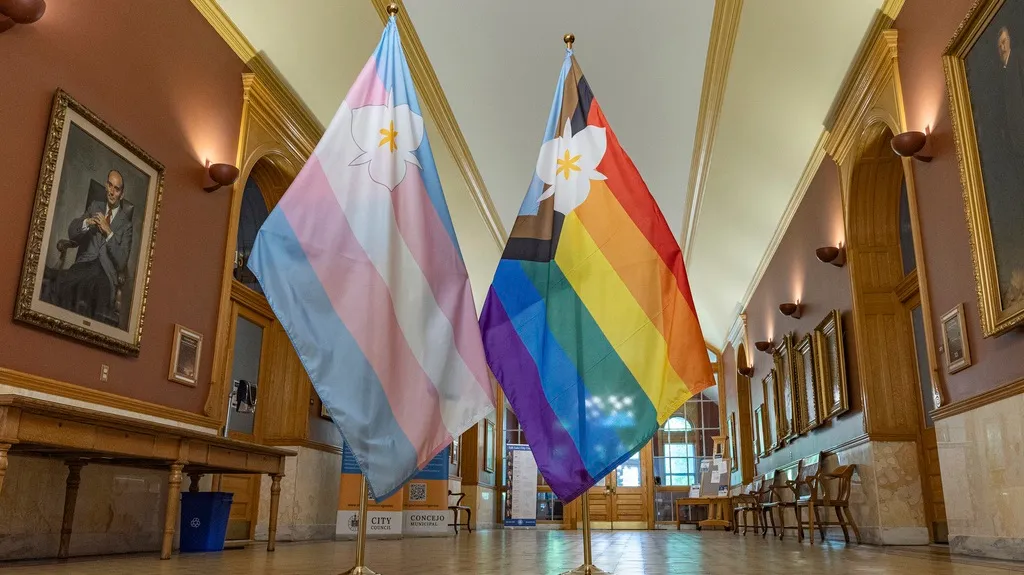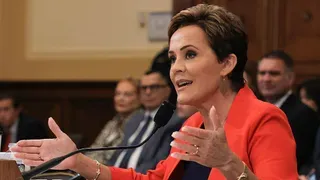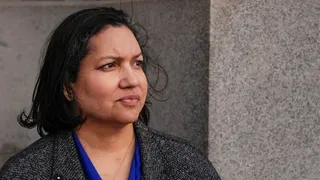April 23, 2012
Dallas Hosts NAPWA Healthy Living Summit
Drew Jackson READ TIME: 5 MIN.
The National Association of People with AIDS (NAPWA) convened their first annual National Healthy Living Summit April 10-13 in Dallas, TX. The Summit replaced NAPWA's previous "Staying Alive" conferences and shifted the focus from surviving with HIV to living complete, productive, and fulfilling lives in spite of HIV.
The National Healthy Living Summit (NHLS) was a first; it was exclusively presented by and targeted for people living with HIV/AIDS. More than 300 attendees from across the country were able to network and connect with each other. Additionally, attendees were able to choose the session tracks of their choice, which included Positive Women, Positive Men, Positive Youth, Skills Building, and Hot Topic workshops.
Some of the Hot Topic workshops included Prevention as Treatment, HIV -- Faith and Religions, Mental Health, HIV Stigma, Positive Leadership, HIV Criminalization and more. Through these interactive tracks and workshops, the Summit presented a forum where attendees could share their experiences, learn how to enhance access to care, learn how to battle stigma, and stay informed.
I had the opportunity to sit in on and visit with the presenters of both the Positive Men and the Skills Building tracks.
Dr. Wesley Badillo led the Skills Building track. Badillo is both the Coordinator of the New York State Latino HIV Testing Month and the Statewide Coordinator of the Expanded Syringe Access Program, both of which fall under the umbrella of the New York State Department of Health AIDS Institute. Badillo focuses on education and prevention, saying "Why do we have to wait until people get sick when we can help prevent the disease?"
Badillo continued, "Prevention should never be abandoned. Just because the disease is treatable doesn't mean that people should stop using prevention. One of the keys is to include people living with HIV to be involved in the prevention efforts. HIV-positive men and women have a unique perspective from which they can help educate the community about the spectrum of issues surrounding HIV/AIDS, some of which include emotional well being, drug abuse, and family problems."
Badillo's work focuses on the Latino community. His latest endeavor is helping to develop and launch the SABER program. SABER is a Latino/Hispanic-focused program to promote knowledge of HIV sero-status in the Latino/Hispanic communities. The word saber, "to know", has been transformed into an important health communication acronym: S:alud, A:ccion, B:ienestar, E:ducacion and R:espeto.
SABER is based on the principles of community organizing and mobilizing of individuals within the communities to spread the message of prevention, testing, and access to care. Badillo said, "Often in the Latino community, if an individual tests positive, they will develop AIDS within the first year if they don't have access to treatment." Unfortunately, there are multiple obstacles that the Latino community must overcome regarding treatment: stigma, not seeing testing as a priority, and the universal 'it can't happen to me' syndrome.
Stigma surrounding HIV/AIDS is an ongoing battle, but can vary from region to region. This is especially true in the younger generation who don't see themselves at risk. In the Buffalo area, Badillo cites the example of suburban kids getting infected due to drug use and dirty syringes. They may buy one syringe at a pharmacy, instead of the 10 syringes the New York law allows. They shoot up drugs with their friends and share the syringe. They feel invulnerable because they are using with their friends.
When asked how an average Joe can help in the prevention and testing initiatives, Badillo replied, "Visibility. Participation. Promotion." Badillo recommended talking with, not to, the younger at-risk generation, feeling that including them in the conversation is essential.
Prevention as a Cure
Rodney McCoy, who led the Positive Men track, has spent 25 years working in HIV Prevention roles. McCoy is currently a Program Manager with NAPWA and oversees the Bayard Rustin project, a community mobilization project that increases access to HIV testing for Black gay and bisexual men in the Washington, DC, area.
McCoy called the Bayard Rustin project a community mobilization project; working with community based organizations and agencies and HIV-positive individuals in order to increase access to testing and linkage to care for African-American gay and bisexual men.
"We feel like we make it a community mobilization effort," said McCoy. "We have organizations that have different points of entry to different communities of black gay men. We also work with openly HIV-positive black gay and bi men, encouraging them to tell their stories about living with HIV/AIDS. Putting a human face to the issue that many fear helps to lessen the stigma of HIV/AIDS. At risk individuals can be inspired and motivated to get tested when they see HIV-positive individuals living well."
McCoy was inspired by the NHLS because instead of focusing on numbers, counts and percentages, the Summit centralized around the theme of living with HIV. McCoy specifically remembers one person who said, "This was the most convincing conference I have ever been to." When McCoy asked him what he meant, the individual responded by saying, "Now I feel that I must do something."
While Dr. Badillo focuses on prevention, the programs McCoy leads focus on testing, with an emphasis on access and linkage to care for black gay and bisexual men. McCoy hopes that these efforts will lead to the reduction of new infections and serve as a model not just for his DC area, but also for the country.
Surprisingly, McCoy points out that in DC, the fastest growing demographic of newly infected aren't the younger generation, but the elder generation -- individuals 50 years of age and over. McCoy points out that the elderly generation is still active sexually. With the ubiquitous availability of drugs like Viagra or Levitra which help boast vitality, coupled with the lack of any sustained HIV prevention campaigns targeted towards our elders, the elderly generation also fall into the at-risk population.
When asked what an average Joe can do to help, McCoy was quick to reply, "We can all be convicted to act. Nothing is too small. Something else people can do is go to your churches and tell them they need to do something about HIV. People can go to their church, fraternity, or family and say that they want to talk about HIV. Providing a condom for a young person is a great way to open that conversation. Nothing is too small. The most important thing is that you do something."
Founded in 1983, NAPWA is the largest and oldest advocacy organization for people living with HIV/AIDS. For further information visit www.napwa.org
Drew Jackson was born in Brooklyn and has been writing ever since he graduated from NYC. He now lives in Dallas happily married to his husband Hugh. Jackson is currently working on his next play.





